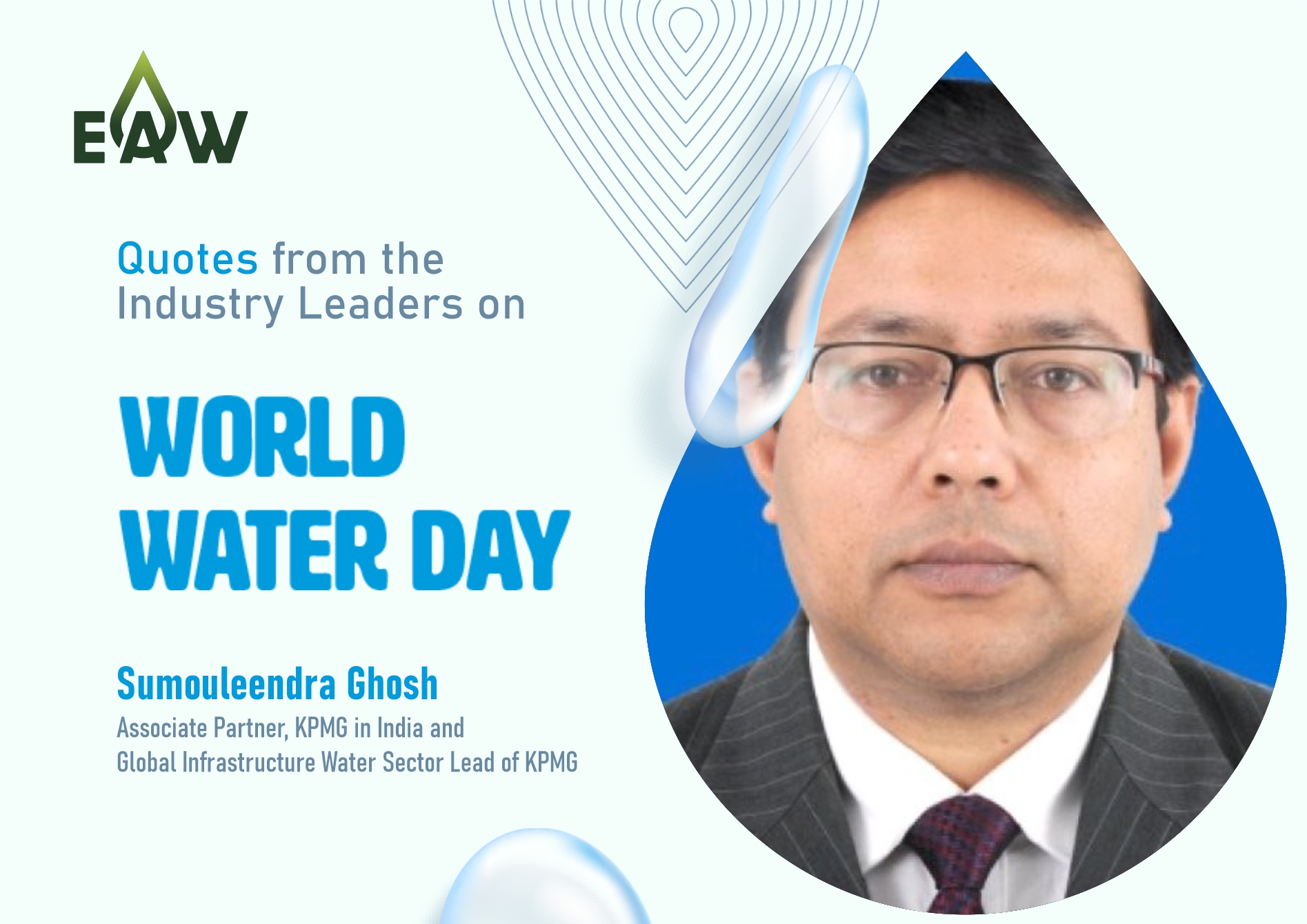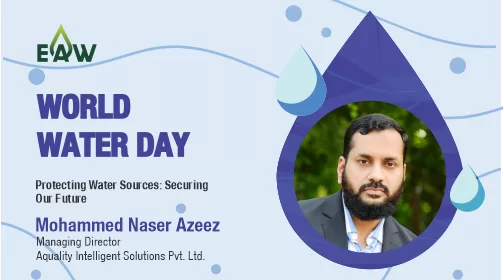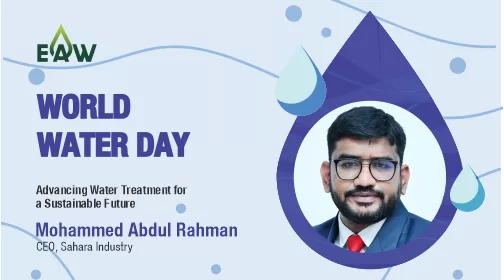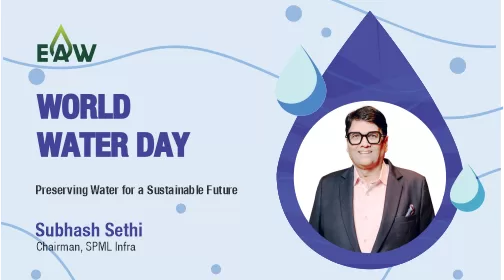By Sumouleendra Ghosh, Associate Partner, KPMG in India and Global Infrastructure Water Sector Lead of KPMG –
The Indian water sector is at an important crossroad. Increasing demand coupled with dwindling freshwater resources as led to a situation where the country is staring at significant water stress in the near future. Today, the water sector in India finds itself grappling with two realities – the need for managing water optimally and the challenge of meeting the growing water demand from competing needs of domestic, agricultural and industrial sectors.
In the recent past, India has witnessed significant public spending in the water sector – through several flagship programs launched by Government of India, such as Jal Jeevan Mission, AMRUT (I & II) and Namami Gange Mission. We are also witnessing several major trends in the water sector – both in India and across the world, mainly as a response to the challenges being faced. These trends are going to define the water sector in the future.
First, there is a paradigm change in focus from asset creation to service delivery. This change in focus can be witnessed in both program design and monitoring. In the future, this is expected to gain center stage, with program evaluation to be conducted based on outcomes, rather than physical and financial achievement. Secondly, there is a growing focus on private sector involvement in asset creation, asset management and service delivery in the water sector. Different PPP business models like HAM and DBOT, are being explored to encourage private players to actively participate in the sector. Finally, there is a growing emphasis on digitalisation and automation, including smart utility solutions, Big Data, AI/ML, IoT, etc.
Finally, there is a growing realisation that water resources need to be managed in an integrated and holistic manner. Both problem definition and solution design in the sector should happen keeping in mind the circularity of water resource. For example, source sustainability and water demand management are interlinked with wastewater management and reuse of treated wastewater. Also, different types of water demand like domestic, industrial and agricultural demands are linked to each other and should be managed in a holistic manner.
So, in a nutshell, integrated water resource management with a clear focus on outcomes and impacts – strengthened by the power of technology and private sector efficiency and innovativeness will help mankind to address water challenges going forward.





